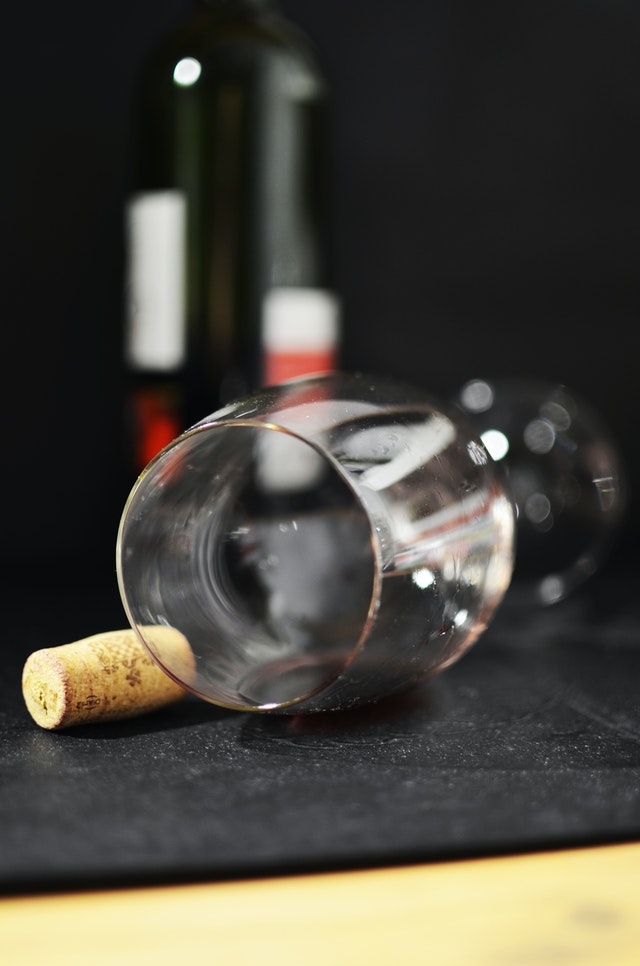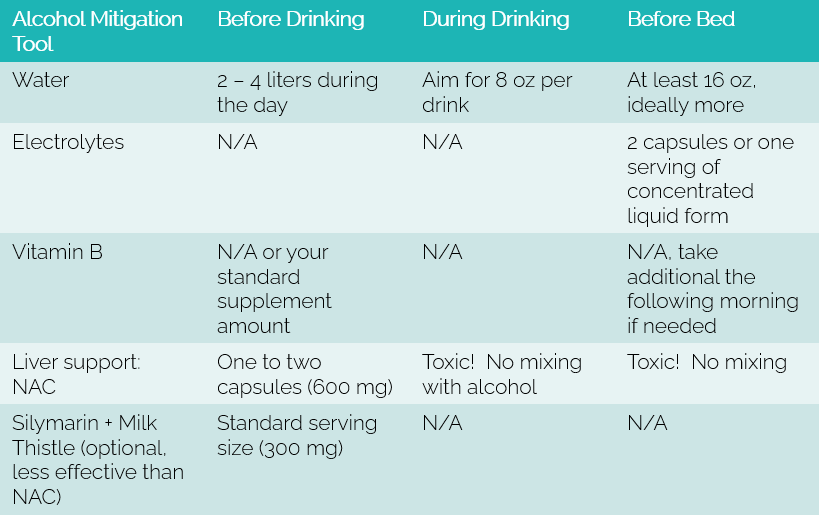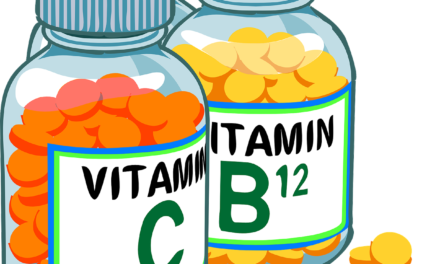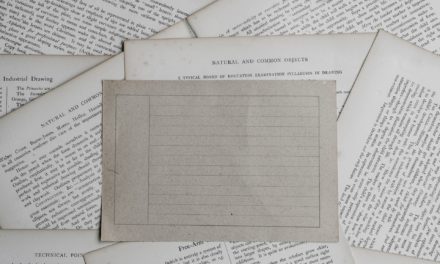WWhile I’m no longer the over-indulger of my rash and reckless 20’s, I still enjoy a good drink on the weekend. At the same time, I’m well aware of its deleterious effects. I’ve long used ways to limit its health impact, and take occasional abstinence breaks to make sure it isn’t slowing me down during the work week. A few years back I read about using dihydromyricetin (abbreviated DHM) for alcohol mitigation, where it’d supposedly reduce or eliminate hangovers. I’m not prone to hangovers anyway–I stay on top of my hydration and vitamins–but I’d get the occasional one and figured it was worth a test.
Every other hangover treatment I’ve tried fell short of the mark so I had low expectations. I was pleasantly surprised when I tested it out on a fairly heavy drinking Friday night and woke up feeling fine Saturday. I’ve used it regularly since then, and occasionally drank without it…and notice the difference when I skip it. It’s also worked well for several friends who’ve tried it on my recommendation. All the same, I like to know why something works, and I found a solid body of studies testing DHM against alcohol. In this post I’m going to dig into what to expect, how to use it, and what the research tells us.
Before getting any further, alcohol is a touchy subject and I want to make it clear that I don’t encourage you to go out and drink. People vary widely in how well their bodies tolerate it, and some unfortunately can’t control themselves. Over the years I’ve known too many people who got addicted, DUIs, and/or screwed up their relationships and jobs from drinking. If you’ve got issues with alcohol, then DHM isn’t going to solve them. It might even make them worse as you won’t feel the negative effects as much (just like an alcoholic who justifies drinking more by saying they’re taking liver supplements).
What it will do is help those who already can drink responsibly reduce the negative effects. In the United States, of people 12 years old and up, roughly 80% will drink at least once in their lifetime, with ~65% in the last year and ~51% in the last month (see tables 2.17B, 2.18B, and 2.19B in [1]“Section 2 PE Tables – Results from the 2019 National Survey on Drug Use and Health: Detailed Tables, SAMHSA, CBHSQ.” Accessed March 2, 2021. … Continue reading for exact numbers). Given that high percentage, it’s important to have tools to reduce the side effects. I’m hopeful we’ll get even better ones in the future, but for now DHM is the most effective I’ve found. It works even better with some other alcohol mitigations tools I’ll discuss below.

DHM just might stop that bottle of wine from knocking you out the following morning
How It Feels
Taking DHM on its own doesn’t do anything that I’ve noticed. As far as I can tell, it has zero impact on mood, energy, productivity, etc. So, the first time testing it, don’t expect to feeling anything directly. Its impact is solely on alcohol, where it has several subtle effects that you’ll pick up on if you pay attention.
First, taking it before you start drinking will slow down how fast you feel intoxicated. I’ve noticed that popping two capsules delays that initial buzzed feeling by roughly 30 minutes or so, as if I were taking half-drinks. The alcohol does catch up eventually though, so you need to be careful not to overdrink to compensate.
Once you’re intoxicated, it subtly speeds up how quickly you’ll feel like you’re sobering up. Importantly, that doesn’t mean you’re actually sober, and you certainly shouldn’t drive. If you’ve ever tried the outdated advice to have a coffee to sober up, it’s similar. You’ll feel less intoxicated but remain impaired. Nonetheless, it does help me wind down the night quicker than if I just waited alcohol out. According to the clinical research, you are metabolizing alcohol noticeably faster (see the study section below for more details). The problem is, you’ll think you’re sober well before your blood alcohol level gets to 0.0.
The other difference is how you feel the next day. When I behave myself and drink moderately in the 2 to 4 units range, then as long as I get a solid night’s sleep I feel as if I hadn’t drank at all. Such times as I’ve overindulged while using it, it improves my hangover by one order of magnitude. Instead of waking up feeling like lounging in bed and doing nothing, I’ll notice I’m slightly slowed down but nothing that stops me from going about my day.
This makes it a great fit for a work night where you’re going to share a bottle of wine over dinner or have a (controlled!) happy hour. While it’s still worth using on a special occasion like say a birthday where you’re being more free-flowing with alcohol, it’s not enough to make you 100% on a work night so don’t use it as justification for celebrating on a Wednesday night and expecting to get up and be productive on Thursday.
How DHM Works And Clinical Evidence
DHM is a naturally occurring flavonoid found in the wild plant used to make rattan tea. Similar to many other flavonoids, it acts like an antioxidant and anti-inflammatory. Better yet, we have mounting evidence of it protecting against cognitive diseases (IE Alzheimer’s), liver disease, diabetes, etc.[2]Zhang, Jingyao, Yun Chen, Huiqin Luo, Linlin Sun, Mengting Xu, Jin Yu, Qigang Zhou, Guoliang Meng, and Shengju Yang. “Recent Update on the Pharmacological Effects and Mechanisms of … Continue reading Note it’s not medically approved for any of these purposes but research is ongoing, so it might well be a future treatment. In the meantime, let’s look at it specifically for mitigating intoxication.
While there are a good number of studies on DHM in general, the only alcohol ones I’ve found in rats. These studies are pretty invasive and require force-feeding alcohol to the mice daily, so I doubt we’ll see a human equivalent. That isn’t perfect, but as I discussed in supplements and surveys, correlation and causation sometimes that’s the best information we have available.
DHM potentiates your GABAA receptors and reduces the effects of ETOH (the chemical name for ethyl alcohol AKA alcohol), as discussed in this study.[3]Silva, Joshua, Xin Yu, Renita Moradian, Carson Folk, Maximilian H. Spatz, Phoebe Kim, Adil A. Bhatti, Daryl L. Davies, and Jing Liang. “Dihydromyricetin Protects the Liver via Changes in Lipid … Continue reading They took four groups of mice, consisting of a control group with three of them drinking alcohol daily for eight weeks. The alcholic mice were either given low dose DHM, high dose, or no protection:
- Naturally, the control mice had normal liver values
- The drunk mice with no DHM protection had fatty liver disease symptoms with both liver size and blood triglycerides roughly doubled compared to the control mice
- The DHM-fed groups were about halfway between those two, with the higher dose group showing better liver values
As for intoxication levels itself, DHM increases your body’s levels of ADH (alcohol dehydrogenase) and ALDH (acetaldehyde dehydrogenase), which are what breaks down ethanol and sobers you up.[4]Shen, Yi, A. Kerstin Lindemeyer, Claudia Gonzalez, Xuesi M. Shao, Igor Spigelman, Richard W. Olsen, and Jing Liang. “Dihydromyricetin As a Novel Anti-Alcohol Intoxication Medication.” The Journal … Continue reading In the cited study, they took 315 rats and gave them all the same amount of ethanol. One group was the baseline given no DHM. The others got a mix of DHM levels. Finally, they threw a spanner in the works: some of the DHM mice were also given a benzo, flumazenil, which directly counters the DHM’s action of activating GABAA receptors. They then had their blood alcohol levels tested at 0, 5, 30, 60, 90, and 180 minutes after drinking.
The results were yet again interesting:
- The baseline/alcohol alone mice got just as intoxicated as you’d expect
- The flumazenil almost completely counteracted DHM, backing up the hypothesis that the GABAA receptor is where the action is
- And what you’ve been waiting for: the mice given moderate and high DHM doses averaged about 1/3 lower blood alcohol level over the 3 hours test (dose-dependent with the higher DHM group showing faster recovery)
They ran some other tests that aren’t as relevant for us but worth noting. The DHM-treated mice showed fewer alcohol withdrawal signs and hangover symptoms. They even voluntarily drank less alcohol in the future, suggesting they didn’t as much tolerance from the trial.
Those results back up what I’ve both experienced myself and heard from others. It both takes me longer to feel intoxicated and I sober up faster, same as these poor lab rats. I don’t have any liver issues (I get periodic bloodwork and my values are healthy) so I haven’t noticed any changes for the liver protector part, but it makes sense given how DHM works.

DHM Depot’s suggest protocols compared to my preference. I find counting drinks and capsules too unwieldy, and found my middle ground gets most of the benefits while being much easier to consistently follow
Using Dihydromyricetin: The Protocols
My preferred brand is DHM Depot, which is readily available online. They have two suggested protocols:
- To prevent hangovers: take one or two capsules per 3 drinks before going to bed
- To reduce feelings of intoxication: take one or two capsules before starting to drink, then one or two capsules per every 3 drinks
I’ve tested both of these protocols and made several tweaks to make them more practical. It’s one thing if you’re drinking at home (hopefully not alone!) to keep the bottle handy and take a capsule or two after every third drink. Doing that during a night on the town, however, is a little more dicey. I can remember taking some to an upscale lounge and a bartender pointing out that while he knows I’m just taking an anti-alcohol supplement, it looks suspicious for me to keep taking pills after every couple drinks. At the same time, doing just protocol #1 and taking some before bed is easy to forget about by the time you get home.
After several of months of testing, I worked out the following approach that is about 80% as effective as their protocols combined while being far easier for me to stick with:
- I take 2 capsules before I start drinking
- I set 2 to 4 capsules on my kitchen counter next to a cup of water to drink when I get home
That approach takes the guesswork out of using DHM and is something I can stick to even if I drink more than I planned.
Alcohol Supplements
Long before discovering DHM I worked out a stack of anti-alcohol supplements. They’re all good items to use in general, and I’ll discuss below how they impact ethanol. I’m not going to go as deep on sources for these, consider this is an off-the-top-my-head list:
- Water: hydration is critical to health, and along with vitamin D and magnesium is one of the main deficiencies plaguing modern office workers. Exact recommendations vary for your size and activity level, but regardless you should fit in at least 2 liters of water per day. I personally favor 4, though the research varies at that higher level. Alcohol is a potent dehydrator, and that is the biggest reason most people get hangovers. I make sure I get my 4 liters in during the day before I start drinking, and do my best to mix in waters throughout the night. I also leave water on the countertop next to my DHM so I remember to fill up before falling asleep. If I wake up in the middle of the night–which is common as alcohol interrupts deep sleep–I’ll make a point of drinking more water before falling back asleep. This is the cheapest and easiest way to mitigate alcohol’s effects, and anyone reading this should do that regardless of whether they’re drinking ethanol or not
- Electrolytes: alcohol is a diuretic, as beer drinkers notice from the sudden frequent trips to the restroom. While dehydrating you, it’s also flushing out electrolyte levels in your blood. The effect is similar to marathon runners sweating out electrolytes on long jogs in the sun, and is another cause of feeling fatigued and hungover the next day. I’ve used two approaches to replenish them, and both work: in pill form like Salt Sticks, and in liquid form like LyteShow. I prefer LyteShow because I can mix it in my cup of water that I always leave sitting out, so I remember to drink it before going to bed. The pills can work too of course, just leave them ahead of time. Either way, take them before going to bed, and if you’re feeling at all slowed down, take more the next morning
- Vitamin B: alcohol depletes two crucial members of the vitamin B family: thiamine (B1) and B12, to the point where alcoholics regularly have serious deficiencies for these. B vitamins are good ones to supplement in general–there’s mixed but overall, fairly strong evidence for mega doses being good for cognition–but even if you don’t supplement them in general you should consider doing so during a night of drinking (both the day of and the morning after)
- L-Theanine: a classic nootropic that’s been tested against alcohol as well. There’s been some promising studies on it protecting against liver damage (such as in [5]Li, Guilan, Yin Ye, Jingjing Kang, Xiangyang Yao, Yizhou Zhang, Wei Jiang, Min Gao, et al. “L-Theanine Prevents Alcoholic Liver Injury through Enhancing the Antioxidant Capability of … Continue reading). I like it for clearing my head the morning after. I’ve tried using it similar to DHM, actually, and while it does help me not feel as intoxicated, its calming properties made me perhaps too low energy for a night out.

Alcohol mitigation supplements. Not pictured: TUDCA. As potent as it is for liver repair, don’t risk taking it around drinking. NAC is fine if you take it in advance, but once you have alcohol in your system stay away until you’re 100% ethanol free
The liver: your liver works overtime to get it out of your system, going back to that whole “your body treats it like a poison” aspect. There’s a wide variety of liver supplements out there, with pretty solid clinical records behind them. The classic recommendation is milk thistle, though the research is controversial particularly in more recent years. I take a silymarin + milk thistle supplement but don’t expect miracles out of them.
There are two stronger options available today: NAC and TUDCA. They have safety issues and I’ve heard people recommend them without pointing out the dangers, so please be aware of the following:
- NAC (N-Acetyl Cysteine): a useful antioxidant in its own right, and a potent liver protector (note though it doesn’t directly help the liver recover, it instead defends it against further damage). You must take it before drinking, however, as taking it while your liver is processing ethanol is instead toxic. If you’ve had even a single drink, forget about it until the next day! It’s purely a pre-drinking tool, it’s not going to help you with a hangover that you’ve already got. Personally, I take NAC daily for its other useful properties along with bolstering the liver
- TUDCA (Tauroursodeoxycholic Acid): this one is FDA approved for treating chronic liver disease in the form of bile ducts getting destroyed (with the fun name of primary biliary cholangitis). There’s evidence of it restoring unhealthy liver values. That all sounds great…but there’s a problem: loading up on TUDCA then drinking makes it toxic, rather than helpful. Please do not use TUDCA while drinking.
Alcohol and Weight
Beer bellies are a thing for unfortunately good reason: people tend to overindulge on unhealthy snacks while drinking, not to mention picking calorie-dense versions. If and when you drink while watching your waistline, these rules will help limit the damage:
- Alcohol weighs in at 7 calories per gram. The good news is that our bodies are very inefficient in converting ethanol to fat, so a negligible amount if any will make it to your waistline. The bad news? This doesn’t count mixers, so if you like sugary mixers, heavy beers, or richer wines, those extra carb calories accumulate. If you must drink while on a diet, go as pure as you can. Vodka and gin are your lowest calorie options, which when paired with zero calorie club soda (not tonic!) is the best of your bad options. If you must drink beer or wine, go as light as you can
- Drunk food is particularly insidious. While your body is inefficient at storing ethanol calories, it’ll happily run off of them in the blood stream while putting carbs and fat from a late-night taco/pizza/whatever run exactly where you don’t want it. Do your absolute best to not eat after drinking.
Conclusion
What started as me taking a quick look at research on DHM grew out of control here, this is basically my alcohol harm mitigation cheat sheet. Dihydromyricetin is the most effective anti-alcohol supplement I’ve found. Combine it with the above steps for both other supplements and reducing the dieting damage, and you can enjoy moderate drinking with few ill effects.
I need to close this by pointing out that DHM is no excuse for binge drinking, nor enabling any bad habits a person might have with managing their intake. Use it to lessen the ill effects of an occasional vice that you already have in control, not as justification to further indulge. If you’ve hit any of the alcohol drinking warning signs, deal with that on its own.
PS. Struggling to pronounce the full name? I had to look that up before I could record the podcast. I found “Die-hydro-my-ri-set-in” to be the best phonetics for pronouncing it. Better for your sanity to stick to DHM. (credit: https://www.youtube.com/watch?v=4a819LB9WEI. I have no affiliation with the video author, I just appreciate the demo)
References
| ↑1 | “Section 2 PE Tables – Results from the 2019 National Survey on Drug Use and Health: Detailed Tables, SAMHSA, CBHSQ.” Accessed March 2, 2021. https://www.samhsa.gov/data/sites/default/files/reports/rpt29394/NSDUHDetailedTabs2019/NSDUHDetTabsSect2pe2019.htm#tab2-17b |
|---|---|
| ↑2 | Zhang, Jingyao, Yun Chen, Huiqin Luo, Linlin Sun, Mengting Xu, Jin Yu, Qigang Zhou, Guoliang Meng, and Shengju Yang. “Recent Update on the Pharmacological Effects and Mechanisms of Dihydromyricetin.” Frontiers in Pharmacology 9 (2018). https://doi.org/10.3389/fphar.2018.0120 |
| ↑3 | Silva, Joshua, Xin Yu, Renita Moradian, Carson Folk, Maximilian H. Spatz, Phoebe Kim, Adil A. Bhatti, Daryl L. Davies, and Jing Liang. “Dihydromyricetin Protects the Liver via Changes in Lipid Metabolism and Enhanced Ethanol Metabolism.” Alcoholism: Clinical and Experimental Research 44, no. 5 (2020): 1046–60. https://doi.org/10.1111/acer.14326 |
| ↑4 | Shen, Yi, A. Kerstin Lindemeyer, Claudia Gonzalez, Xuesi M. Shao, Igor Spigelman, Richard W. Olsen, and Jing Liang. “Dihydromyricetin As a Novel Anti-Alcohol Intoxication Medication.” The Journal of Neuroscience 32, no. 1 (January 4, 2012): 390–401. https://doi.org/10.1523/JNEUROSCI.4639-11.2012 |
| ↑5 | Li, Guilan, Yin Ye, Jingjing Kang, Xiangyang Yao, Yizhou Zhang, Wei Jiang, Min Gao, et al. “L-Theanine Prevents Alcoholic Liver Injury through Enhancing the Antioxidant Capability of Hepatocytes.” Food and Chemical Toxicology 50, no. 2 (February 1, 2012): 363–72. https://doi.org/10.1016/j.fct.2011.10.036 |





